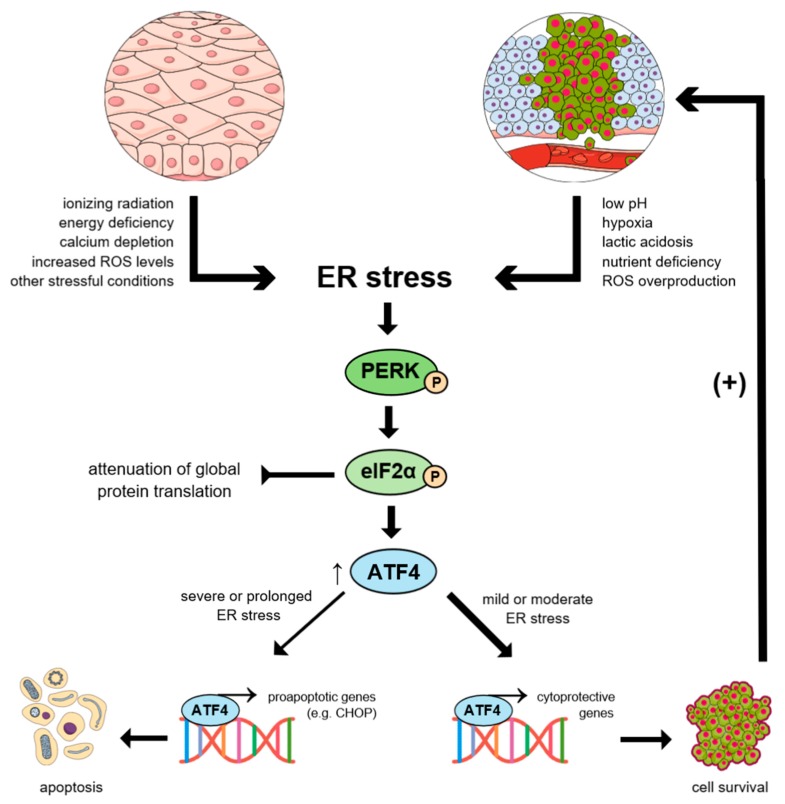Figure 1.
Dual response to Endoplasmic Reticulum (ER) stress conditions in normal epithelial cells and cancer cells via the protein kinase R (PKR)-like endoplasmic reticulum kinase (PERK)-dependent Unfolded Protein Response (UPR) signaling pathway activation. Numerous stress-inducing factors may contribute to impaired formation of proteins and their subsequent accumulation, resulting in activation of UPR signaling pathway in both cell types. While in normal cells their origin is mainly extracellular and rather occasional, cancer cells are shown to be permanently exposed to self-induced, chronic stressors as an effect of their own metabolism. This is the reason why they developed adaptive mechanisms to deal with severe stress conditions and avoid apoptosis, which results in a positive feedback loop. The PERK/eukaryotic translation initiation factor 2α/activating transcription factor 4 (PERK-eIF2α-ATF4) axis is certainly involved in both pro-survival and pro-apoptotic signaling pathways.

